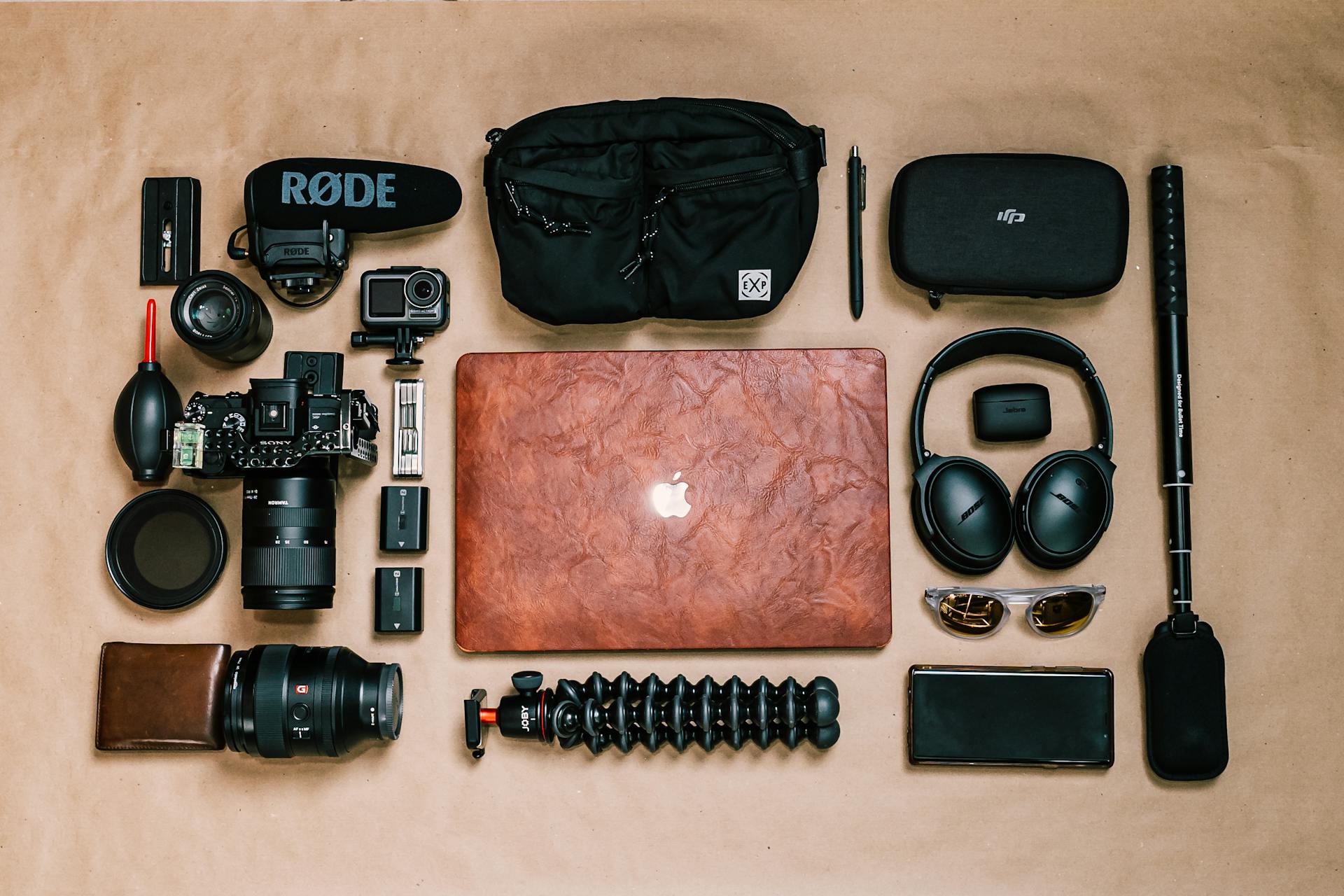As a photographer and tech lover, I’ve faced the problem of a dead battery at the worst time. Finding the best lithium battery for cameras and tracking devices has been a journey. It’s about finding something reliable and trustworthy.

Today’s tech needs batteries that keep up with our fast-paced lives. Long-lasting lithium batteries have changed how we take photos and track things. Whether you’re a pro photographer or love adventures, the right battery is key. It helps keep important moments safe and keeps devices connected.
In this guide, I’ll share tips on picking the best lithium batteries for cameras and tracking devices. My knowledge will help you understand battery tech better. You’ll learn how to choose batteries that boost your devices’ performance.
Key Takeaways
- Lithium batteries offer superior energy density compared to traditional battery types
- Choose batteries specific to your camera or tracking device model
- Consider capacity, voltage, and compatibility when selecting batteries
- Proper maintenance can significantly extend battery lifespan
- Invest in high-quality brands for reliable performance
Understanding Lithium Batteries and Their Benefits
Lithium batteries have changed how we use portable electronics. They offer more power and efficiency for gadgets like cameras and tracking devices. As someone who loves technology, I’ve seen how these batteries have improved our devices.
An efficient lithium cell is a big step forward in portable power. These batteries have unique benefits that make them better than old battery types.
What is a Lithium Battery?
A lithium battery is a rechargeable power source. It uses lithium ions to make electrical energy. These batteries have several key benefits:
- Lightweight design
- High energy density
- Extended operational life
- Consistent voltage output
Advantages of Lithium Batteries for Electronics
The high-performance lithium ion battery is great for portable electronics. It’s perfect for devices that need reliable and long-lasting power.
| Feature | Lithium Battery Performance |
|---|---|
| Energy Density | 300-700 Wh/kg |
| Self-Discharge Rate | Less than 5% per month |
| Temperature Range | -20°C to 60°C |
| Charge Cycles | 500-1500 complete cycles |
These batteries are great for keeping power stable in cameras, tracking devices, and other electronics. They work well in different conditions, making them key for today’s portable devices.
Key Features to Look for in Lithium Batteries
Finding the right battery is key for great photos. When looking for a top camera battery, think about what matters most. These include how well it works and how long it lasts.

It’s important to know what makes a camera and GPS battery good. Look at several key points that affect your photos.
Battery Capacity and Power Requirements
The battery’s capacity, in milliamp-hours (mAh), shows how long it lasts. A higher mAh means you can shoot for longer.
- Capacity range: 800-2000 mAh for compact cameras
- Professional cameras: 2000-3000 mAh recommended
- Temperature performance: -10°C to 40°C optimal range
Performance and Compatibility Considerations
It’s vital to match your battery with your camera. The wrong battery can harm your camera.
| Battery Feature | Importance Level | Impact on Performance |
|---|---|---|
| Voltage Match | High | Critical for device functionality |
| Cycle Life | Medium | Determines long-term usability |
| Temperature Tolerance | High | Ensures reliable outdoor performance |
Choosing Between Battery Types
There are two main types: proprietary and third-party batteries. Manufacturer batteries are sure to work, but third-party ones can be cheaper and just as good.
- Proprietary batteries: Maximum compatibility
- Third-party batteries: More affordable
- Consider warranty and brand reputation
By looking at these features, you can find a great camera battery. It will meet your needs and work well in different situations.
Best Lithium Batteries for Photography
Choosing the right lithium battery is key for great photography. As a pro photographer, I’ve tried many power solutions. I want to help you find the best lithium battery for your needs.
For pros, reliable power is essential. The right battery can save a shot or miss it. It’s that important.
Canon and Nikon Compatible Options
For Canon and Nikon cameras, here are some top picks:
- Ufine 3.7V 1500mAh Lithium Ion Battery – works well with many camera models
- Wasabi Power Replacement Battery – a good, affordable choice
- Original Canon LP-E6N Battery – the best for Canon pros
Sony Camera Battery Recommendations
Sony cameras need special lithium batteries for good performance. Here are my favorites:
- SONY Series Rechargeable Battery NP-BX1/M8 – made just for Sony cameras
- RAVPower NP-BX1 Replacement Battery – a budget-friendly option
- Powerextra 2-Pack Battery – gives you more power for longer shoots
When picking a lithium battery, think about capacity, compatibility, and charging performance. A good battery keeps your camera going when it matters most.
Top Lithium Batteries for Tracking Devices
Tracking devices need a power source that works well in tough conditions. Choosing the right battery is key for reliable tracking.

Today’s tracking devices need a battery that’s efficient and long-lasting. It should be small but powerful enough for GPS and pet tracking.
GPS Tracking Device Battery Requirements
When picking a battery for GPS tracking, consider these important factors:
- Long-lasting power output
- Compact and lightweight design
- Resilience to temperature variations
- Quick recharge capabilities
Best Picks for Pet Trackers
I suggest two top lithium batteries for tracking devices:
- Ufine 3.7V 280mAh Lithium Ion Battery: Great for small pet trackers
- Enegitech AA Lithium Battery: Has 3000mAh capacity for longer tracking
These batteries offer great performance for tracking devices. They ensure continuous monitoring and give users peace of mind.
Comparing Lithium Battery Brands
Photographers and tech fans need to know the best lithium battery brands. My research shows the top makers of camera batteries and lithium power sources.
The world of lithium battery makers is full of competition. Some brands stand out for their quality and new ideas:
- Panasonic: A leader in battery tech with great performance
- Sony: Known for top camera batteries and energy solutions
- Samsung SDI: Always bringing new tech to the table
- Energizer: Offers long-lasting power and reliable products
- CATL: A new leader in battery-making
Brand Reputation Insights
Choosing the best lithium battery brand involves looking at a few key things:
- Manufacturing Quality: They test and check their products a lot
- Technology Innovation: They keep improving and researching
- Customer Support: They offer good warranties and services
- Performance Consistency: They provide steady power for cameras and more
Each brand has its own strengths. Sony is great for camera batteries, and Panasonic is very consistent. Samsung SDI is always pushing the tech limits, making it a brand to watch.
Trust and Reliability Factors
Choosing a lithium battery brand is more than just specs. Reputation, customer feedback, and lasting performance matter a lot. My study shows that brands that are open about how they make things and have good customer support are more trusted.
Safety Considerations When Using Lithium Batteries
Lithium batteries power many important devices. This includes durable camera and GPS batteries, and high-performance electronics. It’s key to know how to use them safely to protect your devices and yourself.

Working with lithium-ion batteries requires following certain safety steps. These steps help avoid risks. Here are some guidelines for safe battery use:
- Always use manufacturer-approved chargers
- Avoid extreme temperature environments
- Inspect batteries regularly for physical damage
- Store batteries in cool, dry locations
- Prevent direct contact with metal objects
Recognizing Battery Safety Standards
Safety certifications are important for battery reliability. Users should look for quality markers that show strong manufacturing standards.
| Certification | Key Requirements | Purpose |
|---|---|---|
| UL | Electrical safety testing | Prevent electrical hazards |
| CE | European safety compliance | Ensure product meets safety regulations |
| IEC | International electrical standards | Guarantee global safety benchmarks |
Proper Usage Tips
Handling your battery right is key. Follow manufacturer guidelines and watch for signs of battery wear.
- Check for swelling or discoloration
- Avoid complete discharge
- Maintain partial charge during storage
- Replace batteries showing signs of wear
By following these safety tips, you can get the most out of your batteries. This includes your camera and GPS systems. It also helps avoid risks from lithium batteries.
Maintenance Tips for Lithium Batteries
Keeping your lithium batteries in great shape needs careful attention and smart care. They are used in cameras and as power for tracking devices. Proper care can make them last longer and work better.
How to Care for Your Batteries
Protecting your lithium batteries starts with knowing how they work. They need special care to stay in top shape:
- Avoid extreme temperatures, which can lower battery power
- Keep batteries at about 50% charge when storing for a long time
- Use chargers made just for your device
- Don’t let batteries go completely dead, as it can harm them
Extending Battery Life
Here are some tips to get the most out of your battery:
- Calibrate batteries every few months by fully charging, then letting them drain completely
- Store batteries in cool, dry places
- Take batteries out of devices when not in use for a long time
- Clean battery contacts often to ensure a good connection
By following these tips, your lithium batteries will stay reliable for tracking devices for years. Smart maintenance is the secret to long battery life.
Future Trends in Lithium Battery Technology
The world of lithium ion battery technology is changing fast. It’s bringing new ideas that will change cameras and tracking devices. As someone who knows a lot about batteries, I’ve seen some big changes coming.
New designs in lithium cells are making big leaps. Scientists are working on several key areas:
- Solid-state battery technology
- Nanotechnology-enhanced energy storage
- Advanced material integration
- Improved charging capabilities
Innovations to Watch For
Companies like Samsung are making solid-state batteries. These batteries are better than old lithium-ion ones. They pack more energy and charge way faster.
| Technology | Key Advantages | Potential Impact |
|---|---|---|
| Solid-State Batteries | Higher energy density | Longer device runtime |
| Graphene Integration | Faster charging | Reduced downtime |
| Nanotechnology | Improved cycle life | Extended battery longevity |
Impact on Cameras and Tracking Devices
New tech will change how we take photos and track things. Imagine cameras that can shoot for hours and GPS trackers that last weeks on one charge. The future of lithium-ion batteries looks bright, with big gains in efficiency and reliability.
As these new ideas keep coming, we’ll see batteries that are more powerful, last longer, and charge faster. This will change what we expect from our portable electronics.
Environmentally Friendly Disposal of Lithium Batteries
It’s important to dispose of lithium batteries the right way. This helps keep our environment safe and manages electronic waste well. As users of top camera and tracker power solutions, we play a big role in reducing harm to the planet.
Proper disposal of lithium batteries is as key as their performance. If not disposed of right, electronic waste can harm the environment a lot.
Recycling Options for Lithium Batteries
Here are some good recycling options:
- Manufacturer Take-Back Programs: Many brands offer free recycling of batteries.
- Local Electronics Recycling Centers: Look for community places that collect batteries.
- Retail Store Recycling: Best Buy and others help recycle batteries.
- Online Recycling Platforms: Websites help find places to recycle.
Responsible Disposal Guidelines
To safely get rid of your lithium battery, do these:
- Tape the battery terminals to avoid short circuits.
- Keep used batteries in a cool, dry place.
- Don’t throw lithium batteries in regular trash.
- Check local rules for how to dispose of them.
Being eco-friendly starts with our actions. By recycling right, we help our planet and support green tech.
Conclusion: Choosing the Right Lithium Battery
Choosing the best lithium battery for cameras and tracking devices is a big decision. We’ve looked at what makes a top-notch power solution for cameras and trackers. It’s all about knowing what your device needs, how it should perform, and how reliable it should be.
When picking a lithium battery, focus on capacity, compatibility, and safety. High-quality batteries from brands like Panasonic, Sony, or Canon can boost your device’s performance. The right battery isn’t just about saving money. It’s about getting reliable power and keeping your devices safe.
Making an Informed Decision
Buy batteries from trusted sources like authorized retailers or the manufacturers themselves. Websites like Amazon and B&H Photo Video have lots of great options. Always check the battery’s specs, make sure it fits your device, and read what other users say before you buy.
Where to Buy Reliable Lithium Batteries
The battery you choose can impact how well your device works. For pros and serious users, having the right power source is key. With the tips from this guide, you’ll know how to pick a lithium battery that fits your needs perfectly.
FAQ
What makes lithium batteries better for cameras and tracking devices compared to other battery types?
Lithium batteries have high energy density and long shelf life. They provide consistent power and are lightweight. This makes them perfect for devices that need reliable power for a long time.
How do I know which lithium battery is compatible with my specific camera model?
Check your camera’s voltage and battery specs. Use the original battery (OEM) or a high-quality third-party battery. Make sure it matches your camera’s voltage and size. Brands like Canon, Nikon, and Sony have specific needs.
What is the average lifespan of a lithium battery for cameras and tracking devices?
A good lithium battery lasts 300-500 charge cycles. This is about 2-3 years of regular use. Lifespan depends on charging habits, storage, and use frequency. Proper care can extend its life.
Are there any safety concerns I should be aware of when using lithium batteries?
Yes, safety is key with lithium batteries. Avoid extreme temperatures and use approved chargers. Look for batteries with UL, CE, and IEC standards. Never puncture or expose them to sunlight or moisture.
How should I store my lithium batteries when not in use?
Store them in a cool, dry place at 50% charge. Keep them away from metal and extreme temperatures. For long storage, keep them at 40-50% capacity to prevent degradation.
Can I use third-party batteries instead of original manufacturer batteries?
Third-party batteries can be cheaper but choose high-quality ones. They should have good reviews and meet your device’s needs. Some third-party batteries offer great value but check compatibility first.
What is the best way to dispose of old lithium batteries?
Don’t throw lithium batteries in regular trash. Recycle them through specialized programs at electronics stores or local recycling centers. This prevents pollution and supports sustainable practices.
How can I maximize the performance and longevity of my lithium battery?
To get the most from your battery, avoid full discharge and charge regularly. Use it often and charge at room temperature. Follow the manufacturer’s guidelines for charging and storage.
Affiliate Disclosure
This website/blog/content contains affiliate links. This means if you click on one of these links and make a purchase, I may receive a small commission at no additional cost to you.
I only recommend products and services that I genuinely believe in and have personally used or thoroughly researched. While I do receive compensation for these recommendations, my opinions remain honest and unbiased.
The commissions earned help support this website and allow me to continue providing valuable content. I appreciate your support when you use these links, but you are never obligated to make purchases through them.
Please note that prices of products or services may vary, and I have no control over these prices or the availability of items. All recommendations are made based on my assessment at the time of posting.
Thank you for your understanding and support.



